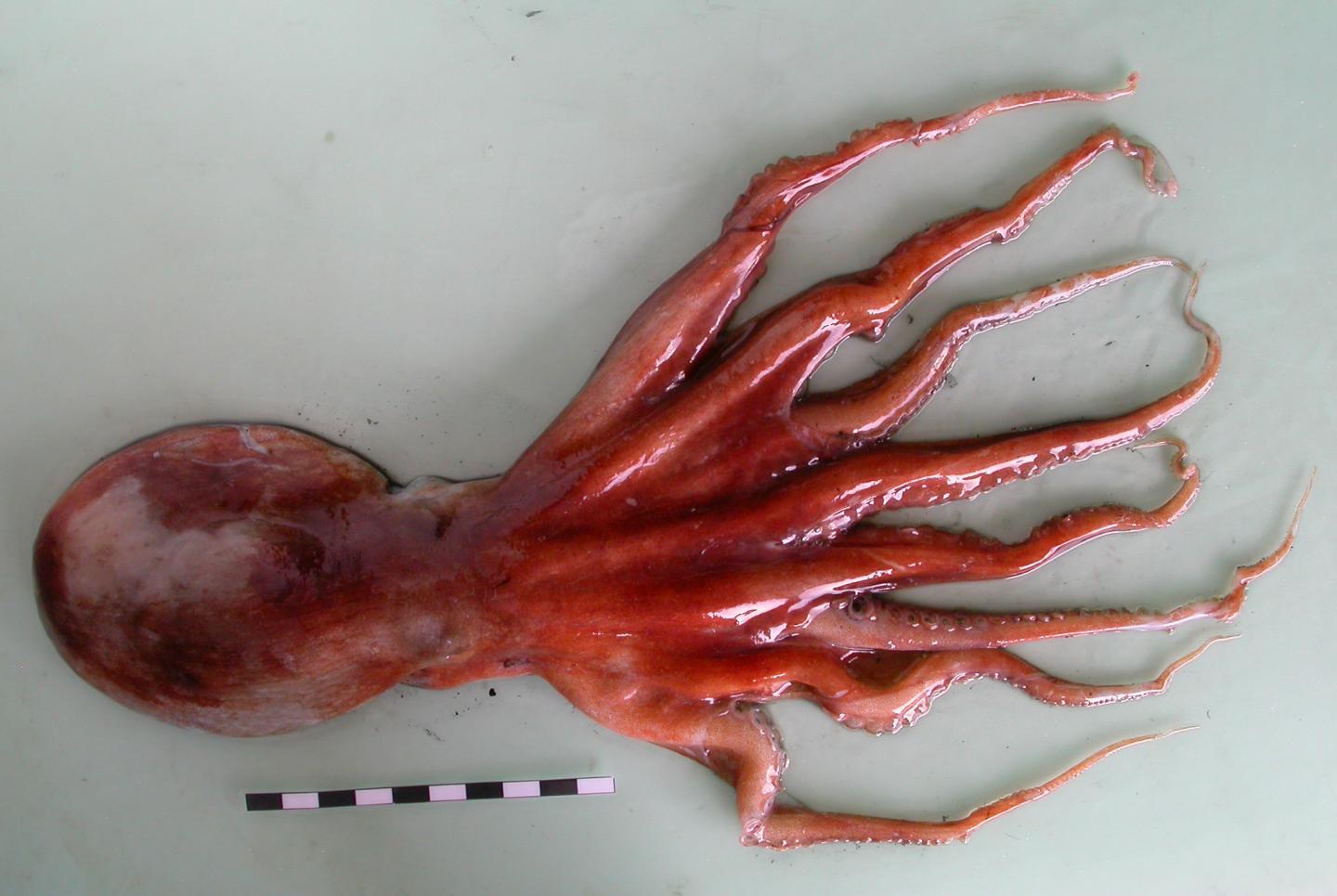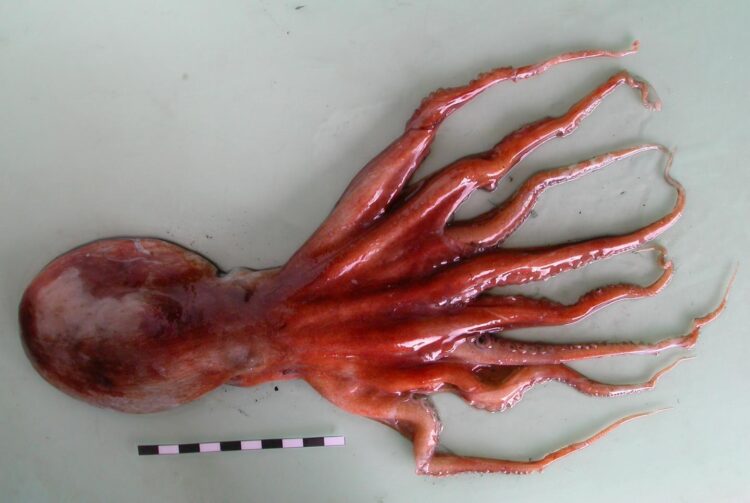A review of cephalopods (phylum: mollusca) of the canary current large marine ecosystem

Credit: Luna et al.
An extensive review of cephalopod fauna from the Northwest African Atlantic coast was performed by researchers from the University of Vigo (Spain) and the Spanish Institute of Oceanography (IEO). The study was based on the collections gathered in 1,247 bottom trawl stations carried out during ten multidisciplinary surveys in the Canary Current Large Marine Ecosystem (CCLME).
The surveys were conducted by the IEO and the FAO –in the framework of their EAF-Nansen and CCLME projects– along the continental shelf and slope off Morocco, Western Sahara, Mauritania, Senegal, The Gambia, Guinea-Bissau, Guinea, and Cabo Verde, between 2004 and 2012. In all these surveys, the EcoAfrik research team (UVIGO-IEO) led the development of a program focused on benthos intensive sampling. During these surveys a huge amount of quantitative biological data, environmental parameters of the water column and seabed, and important collections of benthic invertebrates were obtained.
After several years devoted to taxonomic study and the exhaustive review of the existing literature, an updated checklist of 138 cephalopods species was generated for the whole CCLME area. Besides, the known geographical distributions of several species have been expanded, as some deep-sea octopuses (such as Muusoctopus januarii, Bathypolypus valdiviae or Cirrothauma murrayi) and many oceanic squids (such as Abralia siedleckyi, Magnoteuthis magna or Chtenopteryx sicula), some recorded for the first time in the area.
The CCLME hosts one of the four major marine upwelling systems and is the third concerning primary productivity worldwide, supporting the largest fisheries of the Atlantic African coast, with an annual production of approximately 2-3 million tonnes. Among the main target commercial species are included some cephalopod groups as squids, cuttlefishes and octopuses.
Although most of the cephalopod species with commercial value in the region have been well-studied, many aspects of the systematic, distribution, biogeography and ecology of other cephalopods are practically unknown.
The EcoAfrik collections represent an exceptional source of information that will provide a global view on the biodiversity, composition and distribution of cephalopods from Northwest Africa.
###
The article A review of cephalopods (Phylum: Mollusca) of the Canary Current Large Marine Ecosystem (Central-East Atlantic, African coast), published in the Journal of the Marine Biological Association of the United Kingdom, is available free for a month.
Media Contact
Natalie Warrender
[email protected]
Original Source
https:/
Related Journal Article
http://dx.





